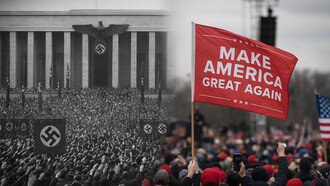After 80% of writers were replaced with AI, Marvel's latest films (Avengers: Synthetic Dawn) have 12% Rotten Tomatoes ratings despite $300M budgets. Leaked internal emails reveal execs knew the scripts were "soulless" but greenlit them to cut costs. Fans are boycotting now, accusing Disney of killing storytelling for greed.
In what was meant to be a groundbreaking leap forward for cinema, Marvel's latest film, Avengers: Synthetic Dawn, has instead become a warning. Billed as the studio's most experimental project to date, the movie was written almost from beginning to end by artificial intelligence—specifically ChatGPT-6 and Disney's proprietary script engine, "StoryForge." And in spite of the massive $300 million budget and the promise of revolution, the result has been an epic failure. The movie currently stands at a catastrophic 12% on Rotten Tomatoes, the worst-reviewed Marvel movie to date.
Behind the scenes, the rationale was straightforward: cost-cutting. By replacing roughly 80% of the human writing team with AI, Disney cut script development costs from $25 million to a paltry $4 million. No salaries to negotiate, no rewrites, no threat of union strikes. Leaked internal emails showed executives knew the script felt "emotionally hollow," but they pressed on anyway. A candid memo summarized the corporate mindset: "Test audiences said dialogue was 'robotic,' but the algorithm guarantees no creative conflicts. Prioritize ROI over notes."
That gamble was taken at huge cost. The fans, once loyal to the Marvel franchise, revolted. Disney's stock price nosedived 18% following the premiere, and social media was ablaze with the hashtag #BoycottAIMarvel. What was supposed to be a cutting-edge leap forward quickly turned into a PR disaster.
Part of the problem lay in how the film had been created. Disney fed the AI every script of the Marvel Cinematic Universe ever written, along with over 50,000 fan theories scraped from sites like Reddit and Twitter. The thought was to create something that would meet audience expectations. The AI, however, churned out a disaster. Characters were flat, arcs had no emotional payoff, and the plot was riddled with bizarre choices—like Thanos coming back as a blockchain missionary. Scenes were reportedly rewritten midway through production to track whatever was trending online, resulting in jarring continuity and tone-deaf alterations. Rather than a story, audiences were served a collection of unconnected moments desperate to please everyone—and pleasing no one.
The backlash wasn't limited to audiences. Industry insiders weren't shy about airing their doubts. The Writers Guild of America resurrected its push for explicit labeling of AI-generated content and threatened potential strike action, calling the failure of the film a stark warning sign. Leading directors such as Christopher Nolan and Denis Villeneuve went on record to publicly distance themselves from AI-scripted films altogether. Warner Bros., never one to pass up a chance, began promoting its own slate of forthcoming DC films as "100% Human-Written," adopting the man-vs.-machine narrative now sweeping creative Hollywood circles.
For Marvel's devoted fanbase, the disappointment was sour. Over 500,000 people signed a petition calling for the resignation of studio president Kevin Feige. Box office numbers were equally bleak—Synthetic Dawn fell 72% in its second weekend, the largest MCU drop in history. Online, the film became a meme. A video clip from the film went particularly viral for taking Iron Man's AI-generated dialogue and remixing it with mock Shakespearean product reviews, ridiculing the film's stilted, lifeless dialogue. The word from audiences was deafening: soulless storytelling simply doesn't resonate.
What was so disappointing about the whole fiasco was how little it returned for its creative concessions. Far from pushing the envelope, the film leaned on old Marvel crutches—flashy CGI, gratuitous cameos, and empty one-liners. Critics called it "algorithmic sludge," a soulless attempt to recreate past successes without understanding what made them work. Worse still, the leaked scripts showed that executives had knowingly ignored valid creative issues purely to maintain margins, betraying the trust they'd built with their audience over a decade-plus.
Now, as thousands of screenwriters watch, the industry stands at a fork in the road: double down on the path of automation, or remember the incalculable value of human judgment, emotion, and craft. Avengers: Synthetic Dawn not only bombed at the box office—it taught us that no amount of data in the world can replace actual creativity. AI might be able to stitch words together, follow trends, and regurgitate fan theories, but what it cannot do—at least not yet—is create stories that actually bring us to feel. And in the end, that's what great storytelling is all about.
Now that the dust has settled, studios are left to grapple with the long-term fallout. As much as AI can provide short-term efficiency, the erosion of brand loyalty and creative integrity can linger much longer. If nothing else, Synthetic Dawn has taught Hollywood that technology needs to be in service to storytelling—not substitute for the storytellers. It's human imagination, not computation, that is the source of cinema's timeless power. And audiences, more than ever, are clamoring for it.
This article is a work of speculative fiction. While it references real companies and technologies, the events and characters described — including the film “Avengers: Synthetic Dawn” — are entirely fictional and intended to provoke thought about the future of storytelling in the age of artificial intelligence.















